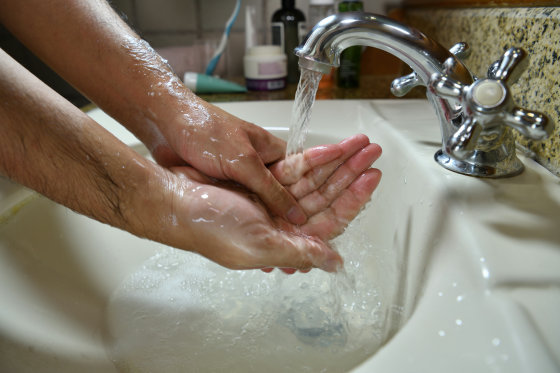Not only hand washing but also “hand wiping” is important for preventing infectious diseases. What is the best hand wiping?

It is important to thoroughly wash your hands to reduce the risk of infectious diseases, not just the new coronavirus countermeasures, but one that is often overlooked is 'drying your washed hands.' Julian Hunt and John Gammon, researchers at the Faculty of Human Sciences at Swansea University in the UK, explain 'how to dry your hands properly.'
The neglected element of hand hygiene-significance of hand drying, efficiency of different methods and clinical implication: A review-John Gammon, Julian Hunt, 2019
Coronavirus and handwashing: research shows proper hand drying is also vital
https://theconversation.com/coronavirus-and-handwashing-research-shows-proper-hand-drying-is-also-vital-132905
According to a 2018 survey, 97% of people did not wash properly after going to the bathroom. The US Centers for Disease Control and Prevention (CDC) has responded by explaining how to wash your hands and how to wash your hands correctly.
Only 5% of people wash their hands after a toilet, what is the right way to wash their hands? -GIGAZINE

The CDC says that it is important to follow the following five steps for proper hand washing.
1: Wet your hands with clean running water, stop the faucet and pick up soap.
2: Rub your hands with soap and lather your hands, and wash the back of your hands, between your fingers, and under your nails.
3: Rub hands for at least 20 seconds. The CDC has indicated that time should be sung 'Happy Birthday To You' twice when washing hands from beginning to end.
4: Rinse your hands with clean running water.
5: Dry hands thoroughly with a clean towel or wind.
Hunt and Gammon published a review paper focusing on 'drying hands.' Although this study examined the effects of hand drying on bacteria, not viruses, it is considered important as a measure against new-type coronavirus infections. Hand drying not only removes water, it also disrupts the path of microbes by friction and reduces microbial movement. Microbial transmission is more likely to occur on wet skin than on dry skin.
Research has shown that the use of hot air hand dryers and cloth roller towels is a problematic method, especially in hospitals. Hand dryers that use hot air or jet air can diffuse particles and microorganisms into the air, polluting the environment. Roller towels also have limited rolls and can eventually transfer bacteria to clean hands.

In public toilets in the United States, hot air hand dryers and roller towels are commonly used, but researchers show that paper towels are the most recommended method in hospitals where the risk of contamination is high. Of course, it is important to dry your hands properly in any environment, but paper towels should be used, especially if you are living in a hospital as an inpatient, visiting a patient, or working as a staff in a hospital. And that. In addition, paper towels seem to be the most effective and quickest way to dry your hands.
Related Posts:
in Note, Posted by darkhorse_log






